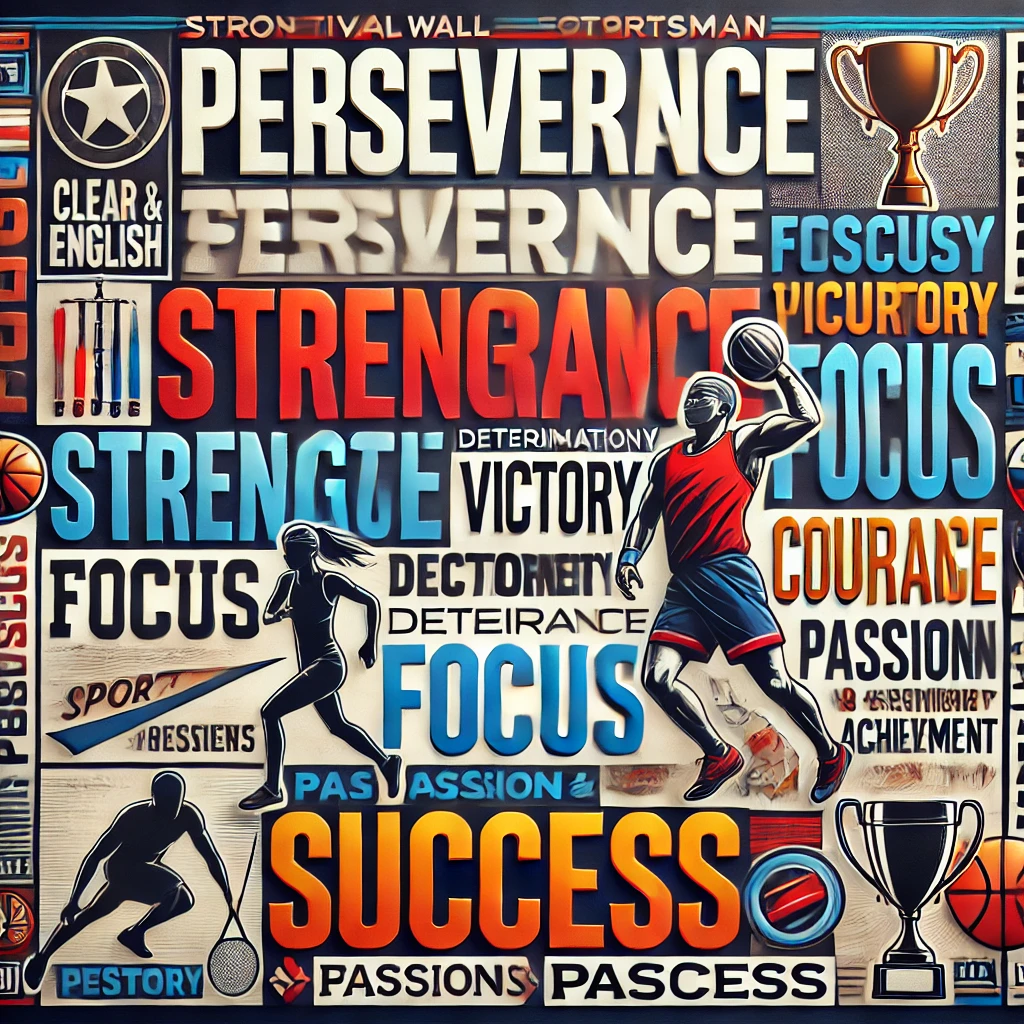The Sportsman Mind-set: Achieving Perfection through Motivation, Discipline, and Training

Success in sports is more than just physical prowess; it’s a holistic endeavour that weaves together motivation, discipline, and training to reach the pinnacle of achievement. Let’s explore the core elements that define the sportsman mind-set and lead to perfection.
Motivation: The Catalyst for Success
Motivation is the bedrock of an athlete’s journey, driving the determination to improve and persevere through obstacles. Athletes often draw motivation from various sources:
- Personal Goals: Setting clear and attainable goals keeps athletes focused. As Michael Jordan said, “Some people want it to happen, some wish it would happen, others make it happen.”
- Role Models: Many athletes find inspiration in their sports idols, using their achievements as a benchmark. Serena Williams once noted, “I really think a champion is defined not by their wins but by how they can recover when they fall.”
- Intrinsic Passion: The love for the sport and the joy it brings is a powerful motivator.
Maintaining motivation involves continuous self-reflection and often external encouragement from coaches, family, and friends.
Discipline: The Foundation of Achievement
Discipline is the structured framework that supports an athlete’s goals. It involves making consistent, right choices even when it’s challenging. Key aspects of discipline include:
- Routine: Establishing and adhering to a strict training schedule fosters consistency. Pele once said, “Success is no accident. It is hard work, perseverance, learning, studying, sacrifice and most of all, love of what you are doing or learning to do.”
- Nutrition: A balanced diet tailored to an athlete’s needs is essential for peak performance.
- Rest and Recovery: Prioritizing rest and adequate recovery prevents burnout and injuries.
Discipline also encompasses mental strength—staying focused, managing stress, and maintaining a positive attitude despite setbacks. Muhammad Ali famously stated, “I hated every minute of training, but I said, ‘Don’t quit. Suffer now and live the rest of your life as a champion.'”
Training: The Path to Mastery
Training is where the transformation occurs. It involves a mix of physical exertion, skill enhancement, and strategic planning. Effective training includes:
- Physical Conditioning: Building strength, endurance, and flexibility through targeted exercises.
- Skill Development: Continuous practice to refine techniques and enhance precision. Tim Notke said, “Hard work beats talent when talent doesn’t work hard.”
- Tactical Training: Learning and practicing game strategies to outsmart opponents.
Incorporating different forms of exercise (cross-training) and staying updated with the latest sports science are also crucial for comprehensive development.
Achievement: The Fruit of Labour
Achievements in sports are milestones reflecting an athlete’s hard work and dedication. They manifest in various forms:
- Personal Bests: Setting new personal records.
- Medals and Trophies: Winning competitions and earning accolades.
- Recognition: Gaining respect and admiration from peers and the community.
While external recognition is gratifying, true achievement often lies in personal victories—knowing you have given your best and improved from where you started. Wayne Gretzky noted, “You miss 100% of the shots you don’t take.”

The Pursuit of Perfection
Perfection in sports is a moving target. It’s not about being flawless but about relentless improvement and striving to reach one’s full potential. This pursuit involves:
- Setting Higher Goals: Continuously raising the bar.
- Embracing Failure: Viewing failures as learning opportunities. Michael Jordan said, “I’ve failed over and over and over again in my life and that is why I succeed.”
- Adaptability: Being open to change and willing to adopt new methods and techniques.
The sportsman mind-set blends motivation, discipline, and rigorous training, all aimed at achieving excellence. It’s a continuous journey of self-improvement, perseverance, and passion. For aspiring athletes, embracing these principles is key to unlocking their full potential and striving for perfection.
Overcoming Slumps: Staying Motivated When Out of Form
Every athlete faces periods of poor performance, where motivation may wane. However, with the right approach, athletes can regain their form and confidence:
- Stay Positive: Focus on past successes and remember that all athletes experience ups and downs. Ernie Banks said, “The only way to prove you are a good sport is to lose.”
- Revisit Goals: Adjusting goals can reignite motivation. Setting smaller, achievable targets can provide quick wins and build confidence.
- Seek Support: Talking to coaches, teammates, or a sports psychologist can offer new perspectives and strategies.
- Reflect and Learn: Analysing what went wrong and identifying areas for improvement can make the path forward clearer.
- Maintain Routine: Sticking to a training routine, even if scaled back, helps maintain discipline and structure. Tommy Lasorda noted, “The difference between the impossible and the possible lies in a person’s determination.”
- Visualize Success: Visualization techniques can help mentally rehearse success, translating into actual performance improvements.
- Embrace the Process: Understand that slumps are part of the journey. Use this time to strengthen mental toughness and resilience. Yogi Berra said, “Baseball is 90% mental and the other half is physical.”

Wall of Impact: A Tool for Overcoming Challenges
When athletes face emotional challenges and slumps, the Wall of Impact can be incredibly beneficial. This tool involves a curated collection of motivational quotes and images, tailored to the individual’s needs through accurate counselling.
- Personalized Motivation: Counselling provides athletes with quotes and images that resonate deeply with their experiences and aspirations, reigniting passion and determination. Phil Jackson said, “The strength of the team is each individual member. The strength of each member is the team.”
- Visual Inspiration: Visual reminders of goals and encouragement from role models serve as daily inspiration.
- Emotional Support: The Wall of Impact acts as a mental and emotional anchor, providing comfort during tough times. Billie Jean King stated, “Champions keep playing until they get it right.”
- Boosting Resilience: Seeing quotes from sports legends who overcame adversity helps athletes understand that slumps are temporary. Michael Jordan noted, “You have to expect things of yourself before you can do them.”
By maintaining a positive mind-set, utilizing the Wall of Impact, and staying committed to training, athletes can navigate through periods of poor form and emerge stronger and more determined. This holistic approach not only helps overcome slumps but also enhances overall performance and mental resilience.



